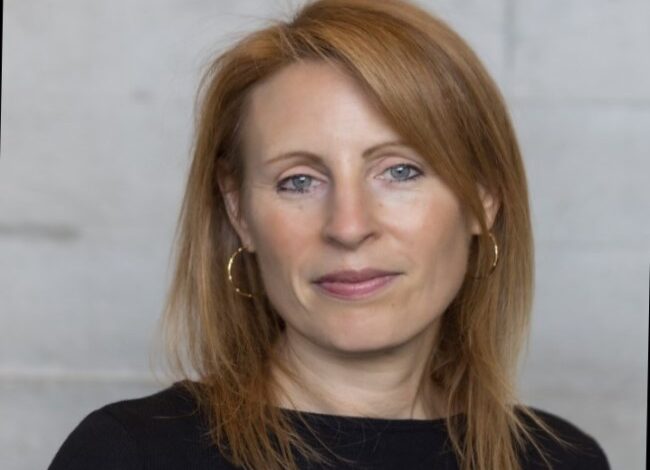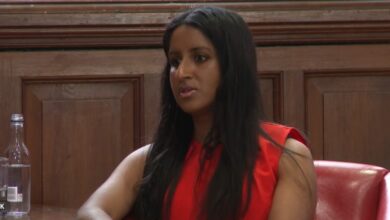Kate Varah: A Visionary Leader Transforming the National Theatre and the Arts Sector

Kate Varah, Executive Director of the National Theatre, is a dynamic force shaping the future of the arts. With a background that spans leadership, arts advocacy, and strategic direction, Varah’s journey is one of inspiring transformation. From her early days as a solicitor to her prominent role in two of the UK’s most respected theatres—the Old Vic and now the National Theatre—Varah has become a powerful advocate for change in the creative industries. In this article, we’ll explore Kate Varah’s significant contributions, her role in the evolving landscape of theatre, and her ongoing influence on artistic and cultural policy.
Early Career and Educational Background
Kate Varah’s academic journey began at the University of Oxford, where she earned a 2:1 BA Hons (MA) in Theology, a discipline that sharpened her analytical skills and understanding of diverse worldviews. During her time at Oxford, she also served as President of the Oxford University Dramatic Society, a role that sparked her lifelong passion for theatre. Following her degree, Varah pursued a career in law, studying at the College of Law and qualifying as a solicitor advocate. This legal background provided a solid foundation for her later work in arts management, offering her the skills needed to navigate the often complex regulatory and policy landscape of the creative industries.
Kate Varah’s Leadership at The Old Vic
Before taking on her current role at the National Theatre, Kate Varah had a significant tenure at the Old Vic, one of London’s most iconic theatres. She joined the Old Vic in 2009, initially serving as Chief Operating Officer and Business Director, before being promoted to Executive Director in 2015. During her time at the Old Vic, Varah played a key role in modernizing the theatre’s operations and expanding its reach.
A particularly notable moment during her time at the Old Vic was her involvement in handling the aftermath of the sexual harassment allegations against former artistic director Kevin Spacey. Varah, along with artistic director Matthew Warchus, led an investigation into the claims, which had far-reaching implications not only for the Old Vic but also for the wider theatre industry. The theatre set up a confidential point of contact for employees to report harassment, and Varah was instrumental in ensuring that the investigation was carried out with transparency and accountability.
Varah has acknowledged the challenges faced by the Old Vic during this period, including issues with the theatre’s reporting processes. The investigation into Kevin Spacey’s behaviour highlighted the need for the industry to rethink its approach to workplace culture and safety. Varah emphasized the importance of having clear boundaries while allowing theatre to remain a space for creative expression. The Old Vic responded by introducing a new system of “Guardians” to help ensure that all staff and performers felt safe and supported in their workplace.
The Transition to the National Theatre
In April 2022, Kate Varah transitioned to the National Theatre as Executive Director and Co-Chief Executive. She now works alongside Director Rufus Norris to shape the future of the National Theatre, both nationally and internationally. The National Theatre, a cornerstone of British theatre, is known for its bold programming and commitment to producing innovative work that resonates with diverse audiences. Under Varah’s leadership, the theatre has continued to thrive as a creative powerhouse, expanding its reach through its National Theatre Live initiative, which broadcasts performances to cinemas worldwide.
Varah’s focus at the National Theatre has been on accessibility, inclusivity, and expanding the theatre’s impact through digital platforms. Her leadership is helping to ensure that theatre remains relevant in the digital age, providing access to audiences far beyond the confines of traditional theatre spaces. As part of her vision, Varah has worked to elevate the National Theatre’s commitment to social issues, ensuring that the institution remains at the forefront of diversity and inclusivity within the arts.
Kate Varah’s Advocacy for the Arts and Creative Industries
Kate Varah is not just a leader within the theatre community; she is also a vocal advocate for the creative industries as a whole. She holds trustee and advisory roles with several organizations, including the Sheffield Theatres Crucible Trust and PiPA (Parents in Performing Arts). She is also a member of the Creative Industries Council Growth Group and the CIISA Co-Creation Council, where she contributes to shaping policies that support the UK’s creative sector.
Varah’s career reflects a deep commitment to fostering opportunities for underrepresented groups in the arts. Her advocacy work, particularly with PiPA, focuses on ensuring equal opportunities for parents and carers in the performing arts, an area often overlooked in the broader conversation about workplace diversity. She also served as a trustee for Chickenshed, an inclusive theatre company, where she championed initiatives that provided access to the arts for children and adults with disabilities.
Her dedication to the arts is also reflected in her volunteer work with various charities. As a founding trustee of the Michael Varah Memorial Fund, Varah has raised significant funds for offender rehabilitation programs, helping to create opportunities for those at risk of offending. This reflects her broader belief in the power of the arts to transform lives and build stronger communities.
Challenges and Controversies: The Kevin Spacey Incident
One of the most high-profile moments of Kate Varah’s career came during her time at the Old Vic, when the theatre became embroiled in allegations against former artistic director Kevin Spacey. Spacey, who had served as artistic director at the Old Vic from 2004 to 2015, faced multiple accusations of sexual harassment and assault, some of which were said to have occurred during his tenure at the theatre. The Old Vic’s response to these allegations became a focal point in the wider conversation about harassment in the arts.
Kate Varah, along with the theatre’s leadership, took swift action by launching an independent investigation into the claims. The investigation revealed a range of issues, including a lack of clear reporting processes and a failure to address complaints in a timely manner. While the scandal was undeniably damaging to the Old Vic’s reputation, Varah’s leadership during this crisis demonstrated her commitment to ensuring that the theatre’s culture would change for the better. The Old Vic’s response—establishing a new system for reporting harassment and introducing Guardians to help protect staff—has been praised as a model for other arts organizations to follow.
Kate Varah’s Influence on the Theatre Industry
Kate Varah’s leadership has had a profound impact on both the National Theatre and the wider arts community. She has helped to reshape how arts institutions respond to issues like harassment and inequality, setting a high standard for transparency, accountability, and inclusivity. Varah has also been instrumental in promoting the idea that creativity and workplace safety are not mutually exclusive. Under her guidance, both the National Theatre and the Old Vic have worked toward creating environments where artistic expression can flourish without compromising the safety and well-being of those involved.
As the National Theatre continues to lead the way in creating compelling, inclusive, and accessible theatre, Varah’s legacy is already secure. Her work has demonstrated the importance of leadership that is both visionary and responsive, ensuring that theatre remains a vibrant and transformative force in society.
Conclusion
Kate Varah is a transformative leader who is shaping the future of the UK’s theatre landscape. Her work at both the Old Vic and the National Theatre has been marked by a commitment to inclusivity, accessibility, and fostering an environment where creativity can thrive. Her advocacy for the arts, her leadership during challenging moments, and her focus on rehabilitation and social change make her one of the most important figures in contemporary British theatre. As Varah continues to guide the National Theatre through a period of growth and change, her influence on the arts world will undoubtedly be felt for years to come.



